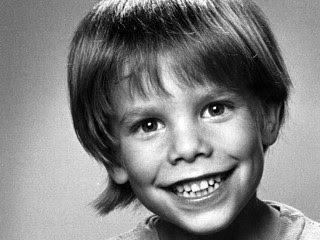I have been entranced by the saga of Claire and Jamie for almost 10 years now. I laughed when they got married, cried when they were separated, angry when they fought -- I have put a lot of my hard-won emotion into your creative thinking. I have read, re-read and re-re-read the first four books more times than most people change underwear. And all I can say upon finishing your latest is WHAT THE HELL IS THE MATTER WITH YOU!? Did you get lazy? Did you get just a little too much money that trips to Figi cut into writing time? Did you decide to bring yet another 1000 page book into the series in which you will complete ALL of the freaking story lines that you left ridiculously hanging in this book?
Seriously, LEFT HANGING...not suspense "ooh, can't wait to read the next book and find out what happens" but more that you went to get some tea and FORGOT that Jim was stuck in a closet...that the Cameron guy had Bree at gunpoint...where the hell did Roger and William B EVEN END UP?? Jamie didn't react about Lord John and Claire...Willie didn't react about Ian and Rachel....Jamie didn't talk to Willie really at all! Did your hand start to hurt from writing about NOTHING for 90% of the book and then trying to stash 100 different things into the last 10%???
And then lets go into the whole new level of mysticism you decided to introduce. I was with you when standing stone transported people across centuries - that I get, its crazy but I get it. I was kind of there when Jamie as a ghost could see Claire. I felt your need to have Jamie able to see the children when they returned to the 21st century but Diana....you know what? That Jim and Mandy have some sort of ESP and can "see each other in red" and "feel each other" from far away....you. lost. me. I mean really? Did you not think you were selling the mystic side enough? Did the whole family have to be freaks? Maybe this is a form of cancer or mutation they developed from hurling themselves through time over and over again.
And here is another bone...Claire got through the stones just fine by falling the first few times. Later I got the introduction of gems as maybe a way to steer but then to make it a necessity... and discussing the possibility of fire or sacrifice? Could you not make up your mind? Did you forget things you had already written? Oh but I guess you did because you totally picked up a fight that Jenny and Claire had already resolved...THEY WEREN'T STILL FIGHTING! Claire KNEW why Jenny called Loaghaire to the house....Come on Diana, we all read the books fanatically...we catch these things.
Diana...I am disappointed but also at a disadvantage...because I know if you put out another 1000 pager with only 10% content, I'll still buy it and spend weeks reading it...because Jamie and Claire are my drug of choice. Damn you for your abusive of power.
Disgruntledly yours,
Tanya



















 I'm currently in the middle of "Loving Frank" by Nancy Horan, another enthralling recommendation by Mom3. The book is a fictionalized account of the affair architect Frank Lloyd Wright had with Mamah Borthwick Cheney in the early 1900's. So far I love the way Horan describes FLW's views on architecture - the "prairie" house and how nature can be interwoven into a home - rather than having to distinguish between the two. I love to be outdoors so the houses being described - right off cliffs in Italy, rooms with trees growing through the middle of them - all sound like heaven and take me far from the concrete jungle I currently live in.
I'm currently in the middle of "Loving Frank" by Nancy Horan, another enthralling recommendation by Mom3. The book is a fictionalized account of the affair architect Frank Lloyd Wright had with Mamah Borthwick Cheney in the early 1900's. So far I love the way Horan describes FLW's views on architecture - the "prairie" house and how nature can be interwoven into a home - rather than having to distinguish between the two. I love to be outdoors so the houses being described - right off cliffs in Italy, rooms with trees growing through the middle of them - all sound like heaven and take me far from the concrete jungle I currently live in.